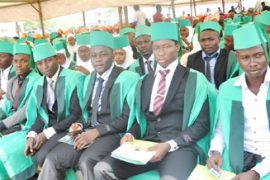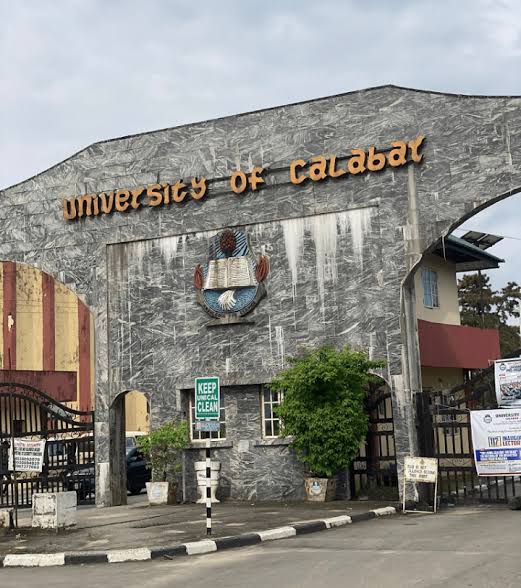SPECIAL REPORT: Why Nigerian Undergraduates’ project works are becoming irrelevant

Photo Credit: XtremeNews.com.ng
By Ekpali Saint
Before now, research works among undergraduate students used to be a serious academic exercise. Unfortunately, the once esteemed exercise is gradually becoming insignificant among many institutions in the country.
Research works, especially among final year students, are parts of requirements essential for successful completion of a course of study in Nigerian tertiary institutions. Students in their final years are usually assigned to an academic staff, who acts a supervisor, to solve a problem of inquiry of their choice. The supervisor is expected to ensure originality, proper editing and supervision needed to ensure the assigned student turns in an acceptable research work. This tradition has suffered setbacks in contemporary times, as such projects are becoming mere formalities.
Various factors are making project works carried out by undergraduate students in the country irrelevant. One of such is the increase in the criminal act of plagiarism or what is fondly called “copy and paste” syndrome. Plagiarism is an academic fraud that is never taken lightly when a researcher is caught. In an age of internet, stuffed with various academic works, most students extract from works directly without referencing the author of the work.
Another reason is the lack of proper care given to the undergraduate project works in Nigerian universities. It has become a usual trend to see project works either thrown away or not handled with care.
Speaking on this, a Lecturer at the Department of Mass Communication, University of Nigeria, Nsukka (UNN) Dr. Michael Ukonu blamed the situation on the fallen educational standard in the country and the spiralling number of admission seekers in tertiary institutions.
“Project work is a follow up from years of courses done by students before they get to final year. The climax of this is to carry out a research, under the supervision of a staff. So, it is not as if undergraduate project is worthless but because of the fallen standard of education.
“Also, many students are being admitted and it will be difficult for a supervisor to supervise many students at a time. But Masters and PHD students do serious research, because they do not offer much courses”, Dr. Ukonu said.
Also commenting on the issue, a 400-level student of the department of Theatre, Film and Carnival Studies University of Calabar, Ogah Michael, decried the growing level of insignificance attached to project works.
“The essence of research is to solve problem. But students do research/project not to solve any problem again but write project because it is required”, Ogah said.
In order to toe the path of a proper research, Michael said he is looking at theatre-scenography in this present century and how technology can be fully employed on stage, which is why he chose the topic; ‘examining stage dynamics in the 21st century: using malta guiness dance’ that will stop him from going into the internet, which always encourage copy and paste.
“The problem I want to solve is to create awareness that theatre scenography in the 21st century is powered by technology – mostly projected sceneries. Maltina dance hall is based on technology, and I am studying maltina dance to look at the equipment they use and at the cost effectiveness of technology in scenes. Am also looking at how it has revolutionized stage dynamics to every combination put together to produce – lightning, costume etc”
However, he frowned against students that go to the internet to copy and paste, saying “it is because they are lazy and not ready to do research”. According to him, “projects done at the undergraduate level are not given attention. In short, it is often thrown away after few months”.
Meanwhile, as plagiarism continues to be on the increase, there are people who believe the act never seems to have an end due to the lack of technology to stop it.
Condemning plagiarism as an academic fraud, a PHD student of University of Lagos, Aondover Eric, said though part of the research contained literature review where the researcher brings in people’s work, but some students still embraces “copy and paste”, thereby rendering the work insignificant.
“Copy and paste is really an academic fraud. There is nothing new in research that is the more reason we have a section of the research known as literature review. But because of mental laziness among students, they tend to do copy and paste which is really disheartening and thus, sometimes add no value to the existing literature in the area”, he said.
He also noted that lecturers see undergraduates as ‘novice’ when it comes to research and yet to be groomed in the nitty-gritty of research, hence the reason for the less attention given to undergraduate project work.
According to him, “the reason for the little or no value to undergraduate project is simple. Lecturers often see undergraduates as beginners, who are just learning how to conduct research. And undergraduate students are not conscious of the seriousness of plagiarism. As such, it is difficult to see that such projects are given due cognisance by Nigerian universities”.
Meanwhile, he believes the rate at which the illegal act is rife can be contained through the effective use of device. Although, Nigerian universities does not have the technology to monitor any act of plagiarism.
“I think there is need to develop software that will checkmate undergraduate projects. By this, it will go a long way to addressing the situation.
“But because Nigeria is a developing country and still not advanced in technology, Nigerian universities do not have such mechanism that will help check such plagiarism like in other advanced countries. Therefore, lecturers may supervise, but that does not mean that the project will be free from plagiarism”, Eric said.
For Joseph Opinya, a final year student of Mass Communication University of Benin, the importance of research cannot be overemphasized, as the researcher seeks to fill a gap in knowledge.
Joseph, who lauds the importance of project work even to the researcher, said that any student that engages himself in the act of copy and paste does that to fetter his cognitive functions and hinders his critical thinking skills.
His words; “The essence of research is to fill a gap in knowledge that must have been identified by the researcher. But a researcher that copy and paste is doing that to his detriment and hampers his mental ability. In short, in as much as research is essential to the society, it is also important to the individual”.
Responding to why such project works are approved by supervisors, the final year student hinted that; “most lecturers are not aware of the copy and paste done by the student. Else, even the external personnel would not have approved it”.
Bewailing over the common habit of thrusting aside project work done by students, which he disapproved of, he said that it is a wrong act and argued that to be the limited space to keep them in schools. For him, it is a lucid reflection of the poor education system in the country.
“For schools that throw away project, most of them are usually because of lack of places to keep them. This is indeed not good and it goes a long way to tell how poor our education system in Nigeria is”, he said.
Attama Emmanuel Chukwuebuka, a final year student of Veterinary Medicine, University of Nigeria Nsukka, averred that departments differ in writing projects, as some require going to the internet and library, while some require going to laboratory, which will determine whether it solves a problem or not.
“Many departments require that students go to the internet and perhaps do copy and paste which might not necessarily solve a problem. But in some departments like Veterinary Medicine, projects are strict. If it is laboratory and practical work, there won’t be room for copy and paste, because it is geared towards solving a problem that will benefit people when it is published. But might not be like that in other departments.
“Also, going to the internet to download project work is either positive or negative. Because some departments do not go to laboratory, what they do is still research. But if they engage themselves in the act of copy and paste, then it is not research work. Although, sourcing information from possible places then crediting the authors is a positive one”, Emmanuel said.
Nonetheless, he noted that supervision and approval of projects is based on the handling style of the lecturer saying; “Some lecturers do not have time to go through the whole work and some do, because they have read wide and can easily detect any copy and paste work or error. So, it depends on the lecturer”.
As regards the consequences of having flawed project work, the Veterinary Medicine student said, “The implication is that it will be rejected for publication in journals”.




